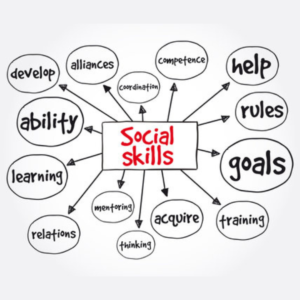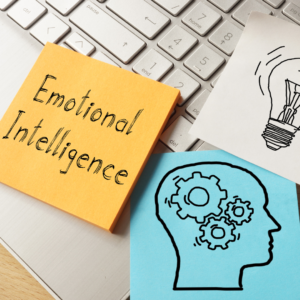In today’s dynamic and interconnected world, success in both personal and professional spheres relies heavily on more than just technical prowess. Soft skills, often referred to as interpersonal or people skills, are becoming increasingly crucial for thriving in diverse environments. Among the plethora of soft skills, five stand out as indispensable pillars: social skills, people skills, character traits, emotional intelligence, and social intelligence. Let’s delve into each of these elements to understand their significance and how mastering them can pave the way for personal and professional growth.
1. Social Skills: Social skills encompass the ability to effectively interact and communicate with others in various social contexts. This includes verbal and non-verbal communication, active listening, and the art of engaging in meaningful conversations. Individuals with strong social skills can navigate social situations with ease, build rapport, and establish positive relationships. These skills are vital in networking, team collaboration, and leadership roles, as they facilitate smooth interpersonal interactions and foster a sense of trust and camaraderie.
2. People Skills: People skills extend beyond mere social interactions to encompass empathy, understanding, and the ability to relate to others on a deeper level. Individuals with strong people skills excel in understanding others’ perspectives, resolving conflicts amicably, and building strong interpersonal connections. These skills are invaluable in roles that require working closely with others, such as customer service, management, and counselling. By cultivating people skills, individuals can forge stronger bonds, inspire trust, and navigate complex social dynamics with grace and empathy.
3. Character Traits: Character traits form the foundation of one’s personality and moral integrity. Integrity, honesty, reliability, and accountability are just a few examples of character traits that define an individual’s ethical compass and guide their behaviour. Demonstrating integrity and ethical conduct not only earns respect but also fosters trust and credibility in personal and professional relationships. Character-driven leadership inspires confidence and loyalty, setting the stage for a positive and ethical organizational culture.
4. Emotional Intelligence: Emotional intelligence (EQ) refers to the ability to recognize, understand, and manage one’s own emotions, as well as those of others. Individuals with high EQ are adept at regulating their emotions, empathizing with others, and navigating social situations with tact and sensitivity. Emotional intelligence enables effective conflict resolution, stress management, and decision-making, making it a cornerstone of effective leadership and interpersonal relationships. By honing emotional intelligence, individuals can cultivate resilience, foster empathy, and cultivate harmonious relationships both at work and in personal life.
5. Social Intelligence: Social intelligence encompasses the ability to comprehend social cues, adapt to social contexts, and effectively navigate social interactions. It involves understanding group dynamics, cultural norms, and unspoken social rules to navigate social situations with finesse and cultural competence. Individuals with high social intelligence excel in building bridges across diverse communities, fostering inclusivity, and leveraging social networks to achieve common goals. Social intelligence is particularly vital in today’s globalized world, where cross-cultural communication and collaboration are increasingly prevalent.
Conclusion: In conclusion, mastering the five essential elements of soft skills—social skills, people skills, character traits, emotional intelligence, and social intelligence—is paramount for success in today’s complex and interconnected world.
These skills empower individuals to forge meaningful connections, navigate social dynamics, and inspire trust and respect in personal and professional relationships. By investing in the development of these soft skills, individuals can unlock their full potential, enhance their interpersonal effectiveness, and cultivate a fulfilling and impactful life. As we continue to navigate the ever-evolving landscape of human interaction, nurturing these essential elements of soft skills will remain indispensable for thriving in both professional and personal spheres.





Leave a Reply